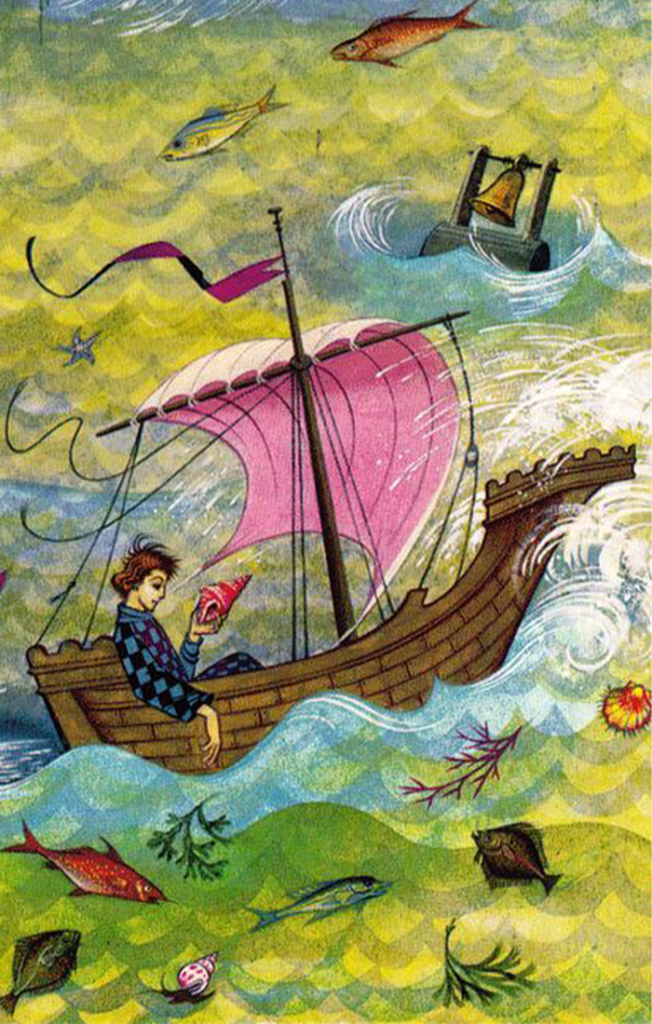‘Errantry’
JRR Tolkien
Commercially found in Adventures of Tom Bombadil
Image: detail, Pauline Baynes’ illustration, for above
[Where did JKR hear the buzz of Dumbledore … ]

‘Errantry’
JRR Tolkien
Commercially found in Adventures of Tom Bombadil
Image: detail, Pauline Baynes’ illustration, for above
[Where did JKR hear the buzz of Dumbledore … ]
I am not saying Christians are like coyotes. [For that, some could cut caustically to coyotes are like Christians — tricksters, roaming in the dark, feeding on the dead … ] Simply noticed — somewhat in passing, as it’s said, having attained, apparently … achieved? … some kind of state where nearly anything I hear,
Short answer: he did not. Neither did Prince Myshkin, that we know of. Likely both believed it. Beauty — in the person of Christ — will do so. And clearly D wrote of M in The Idiot to explore art and beauty and ugliness and salvation. But did he say it, and did he believe that
[Television is educational.] One Saying the same stuff over and over looks like you have different things to say. Two If you’re ever in a below-average film or streaming series, and you beat the tar out of a guy, in a house, and you gaze down in both some shock as also a certain
A line everywhere misattributed to Chesterton reads thus: The young man who rings the bell at the brothel is unconsciously looking for God. This line is not from the great [several senses of the word] man who recently celebrated his 150th birthday, but the mid-century most unmodern novelist Bruce Marshall. The words — which do
In researching links for this site, I came across an obituary for Peter Falk, who died June 23, 2011. Learning that it had been the night of June 23 (a Thursday that year) and not the next day (my wedding anniversary) was a jolt. I really, really, really, really like Columbo. But the bigger problem
To put the last first … Yes … can’t always get what we want Yes yes … we work as unto the Lord Yes yes yes … sacrifice, live, die, etc. But … what for? How then shall we live and die? + Saito says it’s this. To End All Wars — what Prisoner of
My sister gave me a “page-a-day” calendar for Christmas. Michele’s not as fond of them, because of all the paper I think she says. For me, it seems the perfect item: you tear one off, and bam! you’re done. Though it is a lot of paper … But mine is Bible verses, and it’s a
Buttons are the bane of the Fat Guy’s existence. Buttons leave gaps when the Fat Guy’s fat rolls jiggle around and peek through them. Buttons catch on drawer pulls, come undone at the belly, and are generally uncooperative. Buttons are generally on costlier clothing, which means the Fat Guy is spending too much money on
Each animal has its glory. The dog his ears, the rabbit her tail, the dolphin their leaps. Elephant trunk Moose antlers Giraffe … duh Walrus tusks Whale tails Wolf howl Bear claw Bird caw + [We’d first say flight of course but see, think, feel they all fly and largely the same — tho the
During the lockdown read The Plague, turned page next to The Book of the Dun Cow. Not an immediately clear connection not least because Dun Cow is far lesser known. Both chronicle communities within a larger one within a larger world. First, of course, is the full circle vicious and virtual, during a pandemic; latter
A line everywhere misattributed to Chesterton reads thus: The young man who rings the bell at the brothel is unconsciously looking for God. This line is not from the great [several senses of the word] man who recently celebrated his 150th birthday, but the mid-century most unmodern novelist Bruce Marshall. The words — which do
It was the sort of place you wouldn’t be found dead in; the guy on the floor didn’t agree. Didn’t seem to like the floor — but it was in better shape than his face. Then someone had gone duck hunting on his chest. And either another guy was standing in front of me, or the